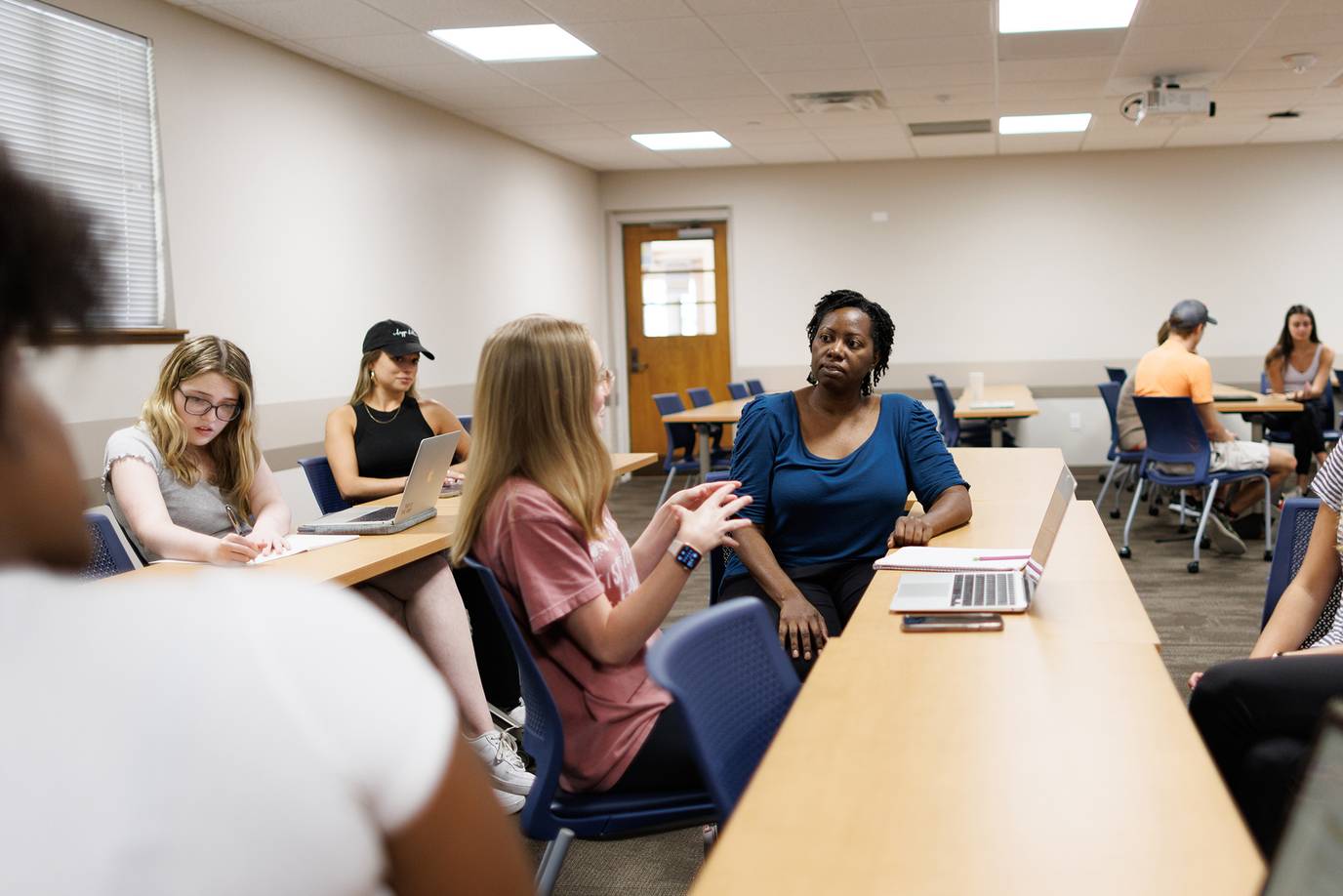Rollins Announces New Major in Community Health
September 19, 2022
By Laura J. Cole ’04 ’08MLS

Drawing on Rollins’ reputation as a leader in community engagement and social innovation, the new community health major in the College’s Professional Advancement program will prepare students to address the most pressing health-related issues of our time.
Through Rollins’ Professional Advancement program, the College is launching a new bachelor’s degree in community health aimed to help students gain an understanding of the issues impacting Central Floridians and how to develop and implement strategies to address them.
As part of the program—which will launch in fall 2023—students will study the root causes of health inequalities across various segments of the community—from food insecurity and housing inequality to health disparities faced by LGBTQ+ and immigrant populations. To complete the major, students are required to take 10 courses. This includes three required core courses; three electives focused on health equity; three electives providing interdisciplinary perspectives ranging from Medical Ethics to Environmental Crisis in Its Cultural Context; and a senior capstone course, where students apply the knowledge they’ve learned while working with local nonprofits like the Second Harvest Food Bank and the Farmworker Association of Florida.
“Rollins’ strength in experiential learning—particularly around community engagement and social innovation—will help prepare students for careers in community health,” says communication professor Anne Stone, who helped propose the new major and will teach courses in the program. “Community-based research projects that allow students to apply the knowledge and methods they’re learning in local contexts will be an important part of each student’s coursework. These courses will require students to complete a minimum of 15 hours outside of class time with a community organization, providing students important practical experience and building their credibility as professionals.”
According to the 2019 Community Health Needs Assessment, conducted by local area hospitals, the top three concerns Central Floridians identified are access to mental health services, access to care, and food insecurity. In addition to the issues that were self-identified, Orlando has the third-highest rate of HIV/AIDS diagnoses, and Florida ranks fourth in the nation for the highest homeless population, trailing behind California, New York, and Washington.
The need for knowledgeable community health practitioners is high, with recent headlines around the globe calling out everything from monkeypox and COVID-19 to the Flint water crisis and the opioid epidemic. These experts not only help analyze, interpret, and communicate crises and trends but serve as valuable messengers between their communities and health-care professionals.
By 2030, the Bureau of Labor Statistics projects a 21 percent increase in employment opportunities for community health practitioners, including biostatisticians, epidemiologists, public health administrators, public health communicators, emergency preparedness responders, and public health researchers. Employment projections in Central Florida echo those numbers with a 19 percent increase in opportunities for jobs in the education and health services sector.
“The COVID-19 pandemic and other health crises are reminders of the need for knowledgeable and culturally competent community health workers,” says Stone. “This program will provide students with the knowledge, skills, and cultural competence to address Central Florida’s community health needs.”
Read More
July 15, 2024
Rollins College Computer Science Professor Discusses AI and the Future of Work
Daniel Myers, an associate professor of computer science at Rollins College, provides expertise on how AI is changing the nature of work.
July 08, 2024
Gunter’s Book on Climate Change Receives Multiple Awards
Political science professor Mike Gunter’s book Climate Travels recently won awards from Foreword magazine and the American Library Association.
July 03, 2024
Rollins Welcomes Dean Lauren Smith
The 32789.com interviewed Lauren Smith, the new Dean for the Hamilton Holt School about her experience with adult education.
